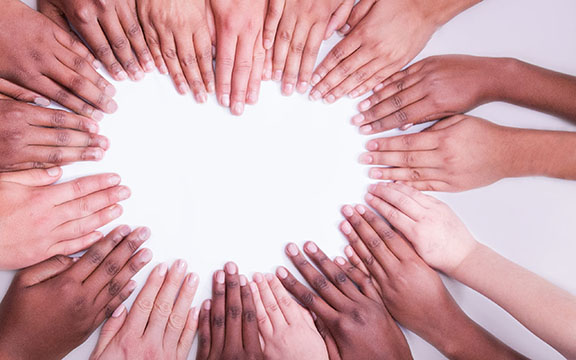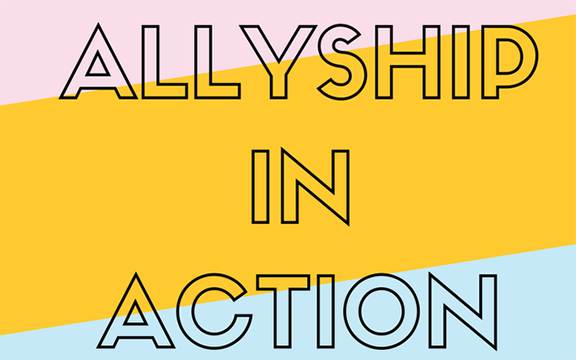 A lot of people who’ve come to me have this idea that being spiritual is about being peaceful. But that idea of spirituality just turns spirituality into wanting to get from here now where you are to there where you want to be, where you think you should be. It becomes resisting this present moment experience and instead trying to match some image that the mind has created, called peace, or serenity, or enlightenment.
A lot of people who’ve come to me have this idea that being spiritual is about being peaceful. But that idea of spirituality just turns spirituality into wanting to get from here now where you are to there where you want to be, where you think you should be. It becomes resisting this present moment experience and instead trying to match some image that the mind has created, called peace, or serenity, or enlightenment.
But as we talk today, I want you to think about spirituality as turning toward whatever is happening now. Turning toward whatever is happening now, whatever is happening in the body, in your experience, without trying to get rid of it, fix it, change it, or make it match some idea or image of peace.
Whatever you find within, whether it is shame, discomfort, fear, spirituality’s invitation is for you to turn toward it, to infuse your present moment experience with curious, loving and warm awareness—to not resist it, but to accept it. And when you look within, if you find resistance or non-acceptance, to welcome that too. To not make that wrong either, to allow the non-allowing, to accept the lack of acceptance, which then allows you to access a much deeper kind of peace. It’s a peace in which even moments of difficulty and discomfort of resistance and non-acceptance are held in the loving arms of awareness. It’s drenching your present moment experience, whatever it is, with unconditional love, welcoming, and curiosity. Because that’s what I’m calling spirituality: the understanding that everything that’s happening within you is spiritual. Even the shame, the ugly thought, the discomfort. And then paradoxically, when you welcome bless, allow, accept it all, that’s when the real possibility of being truly at peace arises; not a peace that’s the opposite of conflict or struggle, but a peace that can hold the conflict and struggle—a peace that’s bigger than that. A peace that’s bigger than the mind can conceptualize or understand. So that’s the perspective I’m inviting you to take today as we talk, and after today, as you look within.
And when it comes to responding to racism, I’m very much inspired by Gandhi and his spiritual approach to social change, which he called non-cooperation. And this brings us to the social change we’re here to talk about today. The social change that’s so urgently needed. But before we do that, I want to point out that this urgency isn’t anything new. This isn’t anything new. These protests we’ve been seeing over these last three weeks aren’t about anything new. Widely circulated images, videos, and news clips capturing the brutalization and killing of black and brown bodies isn’t anything new. Proof of police taking the lives of black and brown bodies without facing significant, if any, consequences isn’t anything new.
The murders of Breonna Taylor, Ahmaud Arbery, George Floyd, Nina Pop, Tony McDade, David McAtee, Dreasjon “Sean” Reed, Maurice Gordon, Rayshard Brooks. All of these murders—all of which happened over the last two months, and so many others— aren’t anything new. What I think is new is that all of these most recent videos and murders happened after March 11th when the pandemic was declared. And many of us were already more attuned to grief and uncertainty. And at the same time, we were less distracted by work and our usual daily lives. But the urgency, the urgency isn’t anything new.
So before we go into what responding to racism looks like, before we go into what it looks like to be non-cooperative today, let’s talk about what I mean when I say racism and white supremacy. When many white people hear the words racism and white supremacy, their minds go to conscious hate, neo-Nazis, the Klan, white supremacists. But that’s different. White supremacy is more than just hate and prejudice. White supremacy is a structure of social and institutional violence. It’s a structure that harms and oppresses people of color by devaluing their needs, desires, and lives, valuing them as less than those of white people. White supremacists are simply one response to that system. It’s a response that basically says yes or more to this system of white supremacy that’s already here.
But another much more common response to the system of white supremacy, the response that I want to challenge today, is to view white supremacists with disdain or disgust while doing nothing about the system itself. To say, “I’m not like them” and to think that’s good enough or to be extra friendly and kind to the next black person who happens to cross your path and think that’s enough, or to only meditate or pray or send thoughts and condolences and think that’s enough. But those aren’t enough. What’s needed is non-cooperation. What’s needed is for you to actively swim against the current, to swim against the relentless and systemic currents of white supremacy. Because if you’re not actively swimming against the current, then you’re just going along with it. In other words, only when you’re actively working toward dismantling white supremacy are you not upholding it. Those are the only two available options.
So let’s talk a little bit more about how we got here. White supremacy was intentionally baked into this society, into every fiber of this society, from the genocide of Native Americans to the enslavement of African people to wars created solely to seize the land and territories occupied by people of color, to immigration policies that have disproportionately harmed Latino and Asian immigrants. That is this country’s history, and that is the foundation upon which the legal system, financial institutions, the medical system, the military, schools, all institutions within this society, were built. And what this means is that if you’re whites, you benefit from white supremacy, whether you like it or not, whether you want to or not, whether you’re aware of it or not. You likely have no idea the level of racism your black and brown brothers and sisters navigate and face every single day, even in liberal bastions like Manhattan and San Francisco. I have my own stories from here where I am in the San Francisco Bay Area. Most recently, I was confronted by a white man who I’d never seen before, who just happened to be passing through my predominantly white neighborhood where I’ve lived for six years, who stopped me while I was enjoying the garden I planted in my front yard and demanded to know what I was doing there.
Again, the problem isn’t this one man. It’s the system that shaped his thinking in such a way that I believe he thought he was doing a good thing, a helpful thing, a righteous thing, by coming up to me in the neighborhood he didn’t know, and questioning my right to be there. And when I say that this man and that every white person who isn’t actively dismantling white supremacy is actually upholding it, I’m not talking about your character, I’m not talking about your intention, I’m talking about your socialization, the way you were taught consciously or unconsciously, intentionally, unintentionally, through culture, society, education, every institution in this society that you’ve ever come into contact with. The way you were taught to view the world and the people in it.
Because what white supremacy truly needs to continue to exist, to thrive, isn’t necessarily clan members or neo-Nazis or human beings full of hate and rage, it’s people going with the flow, going with the flow of the system, going with the flow that the system put in place.
And this is why I say, if you’re not actively working toward dismantling white supremacy, you’re playing a role in upholding it. And I want you to really let that in. If you’re not actively working toward dismantling white supremacy, you’re playing a role in upholding it. And letting all the feelings that come from hearing that too, notice any shame, discomfort, disbelieving defensiveness, any indignation or desire to say, “No, you’re wrong” or, “Not me.” Notice whatever it is—noticing and examining this discomfort is essential if you want to begin dismantling white supremacy. Because if the discomfort goes unquestioned or unexamined it helps to keep white supremacy in place. And here’s how. If you’re feeling that discomfort, but don’t question or examine it, you’ll likely find yourself engaging in unconscious, automatic, habitual or disconnected action. Actions like insisting that you were taught to treat everyone the same, that you’re colorblind, that you don’t care if someone is pink or purple or polka-dotted.
You might cry or point out that you have friends or family members who are people of color, that you have a long history of civil rights activism, or you might raise what you believe to be a more salient issue like class or gender or the problem you have with the words or actions of the protestors. But any compulsive reaction that’s not accompanied by an intentional response to actively dismantling white supremacy helps to keep white supremacy in place. If you’re reacting from a place of discomfort more than you’re responding to what black and brown people all over the country are saying and have been saying for generations, you’re continuing to play a role in upholding white supremacy.

This is why your practice is so important. This is why using spirituality as a tool of awareness rather than as a way to chase peace is so important. So, instead of chasing peace, a peace you can probably find easily if you focus on denying or ignoring or soothing your discomfort. Instead of chasing that peace, the invitation is to turn toward the discomfort, to welcome it, to allow it, to really look at it. Because that awareness of it, that examination of it, helps to diminish its power. And then that allows you to look more closely, more honestly at your own thoughts and behaviors—to examine them, to question them. Not for the purpose of beating yourself up or getting lost in guilt or shame or self-pity or defensiveness—because that’s just another distraction—but for the purpose of then doing the work to begin dismantling racism from the inside out and then taking the next step of taking wise action to begin dismantling systemic racism, to begin acting in non-cooperation with systemic racism.
And so it’s with this understanding of spirituality and racism that I offer the following five ways that you, as spiritual practitioners, can take wise action, ways that you can respond to racism and work toward dismantling white supremacy here and now and in each given moment:
One, look within. Notice your internal reaction when your ideas about racism are challenged, particularly when you feel like you’re being implicated in white supremacy. Notice any impulse to explain or defend without acting on it. Increase your internal capacity to hold that discomfort. And if you can think back to a time when you acted compulsively in response to that discomfort or you did something racist or called a racist or treated a person of color with less kindness or respect than you would have if they’d been white, take steps to repair the harm that was caused. The best time to repair any damage you’ve done is as soon as it happens. The second best time is now.
Two, educate yourself. Buy books about racism and anti-racism and read them, discuss them, do the exercises. Follow organizers working for structural change on social media and then when they say something you doubt or don’t understand. Research it. Avoid asking black and brown people to explain the history and implications of race and racism, unless that’s their job or they’re offering themselves up to you for that.
Three, practice non-cooperation with the system of white supremacy, not white supremacists. Yes, it’s important to call out racism when you see it, but don’t spend your energy and resources trying to convince people who refuse to see the harm that white supremacy does to people of all races. Instead, work toward dismantling the system of white supremacy. Focus your energy on your political representatives, schools, health care programs, your workplace, organizations that are already working for structural change, who work in systems.
Four, put your white privilege to work. You have access, resources, and opportunities that people of color simply don’t have. Use them wisely. Use them in ways that break away from systems of power that oppress and in ways that support structural change. I saw on the news, a clip of a black man halfway between a crowd of protesters and a line of armed police. He was completely alone there, down on one knee, with his head bowed and a young man came out from the back of the crowd with his hands up in the air and stood his body between the black man and the line of police. And when asked later by the press whether he was scared. He said, “No, I wasn’t scared because of the color of my skin.” That’s one example of what using white privilege can look like. And when you’re ready to take action, don’t hesitate to get the guidance of black organizers and activists who’ve already been doing this work for years. And if you do get their help, be sure you compensate them for their time, their expertise and their effort. This allows them to help you and to continue doing their very important work.
And finally, as you start doing the work to dismantle systemic racism, you may feel nervous or hesitant to move forward. You might be scared that you’ll say or do something wrong. And I’m here to tell you: you will. You will.
So five is, don’t let mistakes—not even big mistakes—stop you. You will absolutely make mistakes. People will tell you that you’re causing harm. People will ask you to stop doing what you’re doing or to do what you’re doing differently. That’s part of the learning journey. And when that happens, hold yourself with compassion and listen. Listen, learn, repair the damage caused. Adjust your behavior, then keep going. There’s no freedom from mistakes. Mistakes will happen. Discomfort will happen. Use your spiritual practice to manage the discomfort that would otherwise keep you in reaction rather than responding. Use your spiritual practice to manage the fear of making mistakes. Use your spiritual practice to manage the pain and discomfort that comes when you make a mistake and get criticized. Don’t let that stop or slow you from continuing to take action and then keep going. Keep taking action. Keep swimming against the current.
 About the Author:
About the Author:
Rev. Kamala Itzel Hayward is committed to sharing the tools of Integral Yoga to help others experience the present, get clear on the truth in each moment, replace negative self-talk with self-love and self-acceptance, and access a place inside themselves that is Divine and already perfect. She’s passionate about bringing people together and works with thousands of single women every day in the community she built called the Mindful Path to Love (facebook.com/groups/themindfulpath). Rev. Kamala is also in service as an Integral Yoga Minister, spiritual guide, wedding officiant, workshop leader, teacher, and speaker. Find her online at attunedliving.com.

